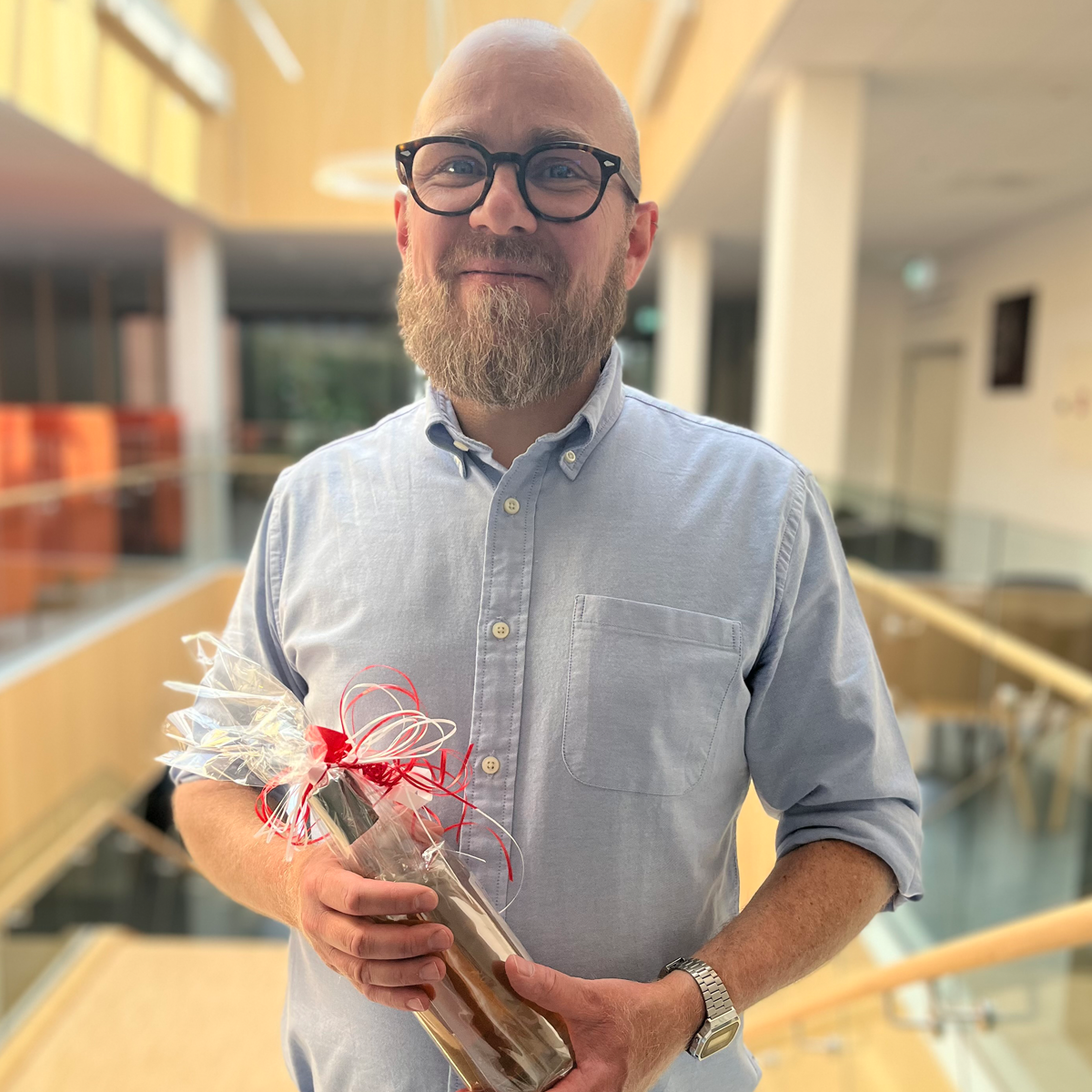
Morten Frølund has been awarded his PhD for his project on art in the landscape
On Thursday, June 22, Morten Frølund defended his PhD project and was awarded his PhD degree. Morten's research focuses on how art in the landscape affects the sensory conditions of our everyday lives.
How do we interact with art in public spaces in the rural landscape - and how does it contribute to our understanding of rural spatial justice?
These are two of the questions PhD student Morten Frølund investigated in his PhD project on art in the landscape.
On Thursday, June 22, he defended the project and was awarded his PhD degree after an exciting and relevant dialogue with the assessment committee.
Public art in everyday life
In his PhD project, Morten Frølund brings a sensory cultural heritage sensibility to our understanding of what rural spatial justice is. Among other things, he does this by examining how people create different sensory spaces and landscapes through their interaction with public art in everyday life.
What is rural spatial justice
Among other things, the term means that those who live in a landscape or area have the right to be recognized and be co-creators of the framework around their everyday lives. In this PhD project, the idea is that sensory space also has an impact on people's everyday lives, and that people connect different sensory memories, emotions and ideas to artworks, thus creating different sensory heritage landscapes.
One of the main points of the project is that people create sensory heritage landscapes in their encounters with statues in public spaces. People do this through the ways in which they connect the sensory qualities of the statues and the landscape with each other and with the memories, emotions and ideas they associate with them.
In his PhD, Morten Frølund argues that such sensory segmentations - sensory orderings - are essential for how people can shape the landscapes around their everyday lives, and therefore also for how we theoretically understand rural spatial justice.
Artworks that are ambiguous in terms of sensations and cultural heritage creation seem to be able to create inclusive landscapes of possibility and provide the best conditions for spatial justice.
Want to know more?
If you work with culture or landscape planning in rural areas or are interested in the framework for everyday rural life and spatial justice, but couldn't attend the defense, we've gathered some material for you here.
- Q&A: Morten gives you some of the thoughts behind his PhD project
- Article: Arts and culture contribute to quality of life, anchoring of newcomers and the rural economy
- Article: Culture is not just for the big cities
If you would like to hear more about the results, you are also welcome to contact Morten Frølund at mofr@sam.sdu.dk

About Morten Frølund
Morten Frølund is a researcher at the Danish Centre for Rural Research, where he studies landscape-based art in rural areas and its relation to cultural heritage and the sensed landscape.